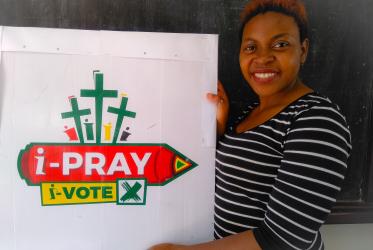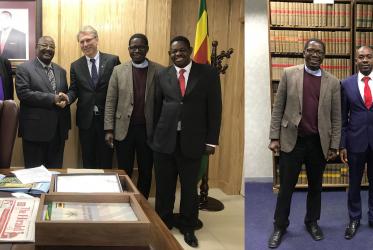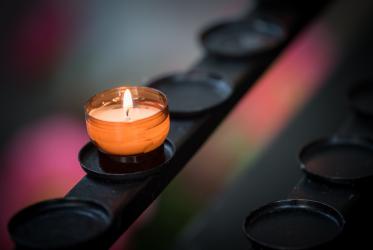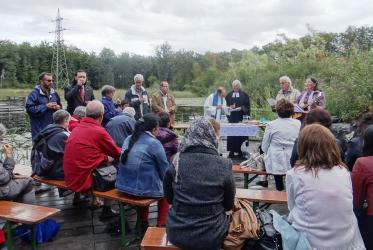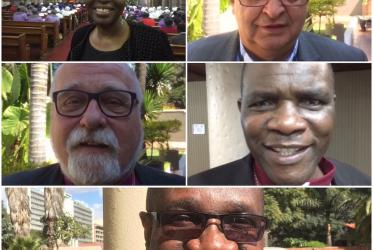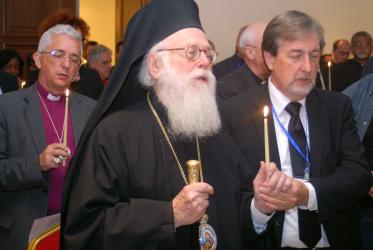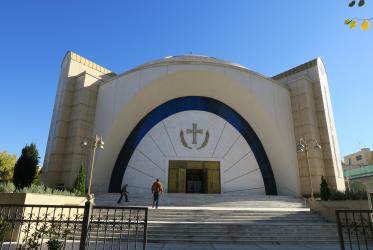Displaying 1 - 20 of 23
Young Africans are eager to grapple with challenges
09 January 2020
WCC well-represented in Religions for Peace leadership
07 October 2019
Rev. Kenneth Mtata reflects on journey of transition in Zimbabwe
20 September 2018
Praying and voting goes together
11 July 2018
#WCC70: Churches as “freedom agents”
12 February 2018
WCC Executive Committee comments on situation in Zimbabwe
22 November 2017
Voices from a solidarity visit to Zimbabwe
25 May 2017
WCC/UN conference calls for coordinated action on refugee crisis
20 January 2016
Rebuilding a smashed church in Albania
23 December 2015
Orthodox church in Albania resurrected
23 December 2015
In Albania, churches’ share of health care has grown in new era
23 December 2015
Global Christian leaders concerned for persecuted Christians
09 November 2015




